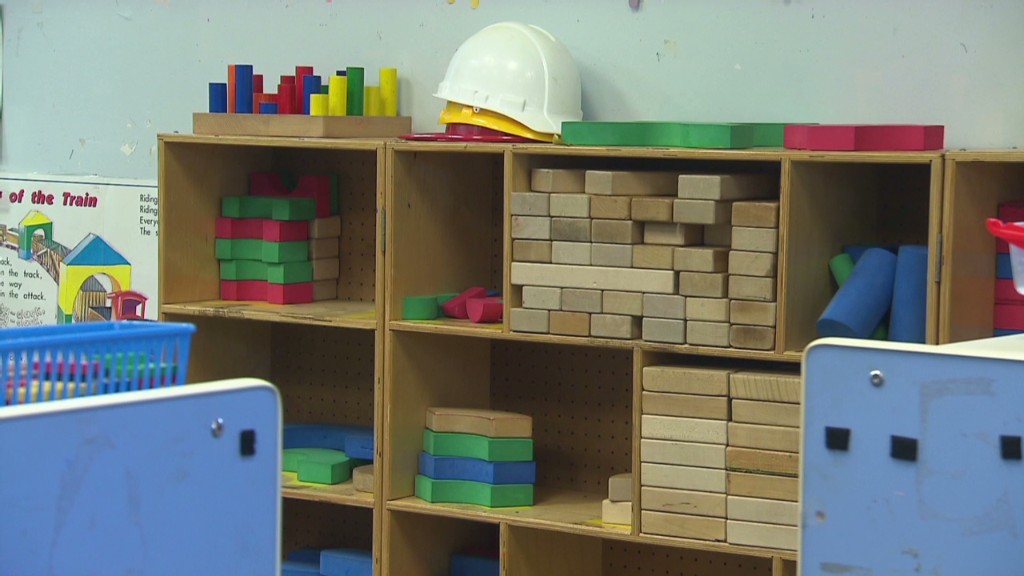
Stephanie King uses government vouchers to feed her five-month-old son. Thanks to the government shutdown, that money could soon disappear.
Despite holding down a full-time job as a bank teller, King, 23, who said she receives no support from the child's father, has a hard time scraping together enough money to pay all her expenses.
King wasn't able to breastfeed her son who was born prematurely, so she relies on $150 in nutrition assistance from the federal government to cover nearly all her food and formula costs.
"I don't know if I can use my WIC checks, and they help out a lot for groceries every month," said King, referring to the government's assistance program.
Her son won't starve without the vouchers, but it will mean that King will have to stop putting aside money she saves for emergencies. Like when she recently had to get her car fixed -- a necessity for work and life where she lives in rural Pennsylvania.
Related: Who gets paid in a shutdown and who doesn't?
King is one of nearly nine million women across the country who will need to figure out what to cut from their monthly budgets if lawmakers don't get the federal government up and running in the next few days.
That's because money for the WIC assistance program -- officially called the Special Supplemental Nutrition Program for Women, Infants and Children -- will likely run out in "a week or so" unless a new budget is passed, according to the United States Department of Agriculture, which runs WIC.
For Chippewa Falls, Wis., mom Angela Maloney, a loss of WIC money means the family might have to get rid of their landline telephone -- a big problem in a rural area with shoddy cell phone service -- or money for back-to-school clothes.
Maloney and her husband, a National Guardsmen and manager at a local factory, get about $200 a month in WIC benefits. That money goes a long way in helping provide healthy food for their two youngest children -- two of seven children in their blended family.
"It would be really difficult to make ends meet," said Maloney, 34. "We'd have to cut back on a lot of things, and we've already cut back on a lot of things."

When families with children are forced to trim their budgets, it makes public health professionals nervous.
Judy Fedie is the pubic health nutrition director for Chippewa County and helps administer the WIC program in the area, which helps a lot of working poor from farm or military families.
She says she's seen all sorts of substitutes for baby formula when people don't have enough money -- juice, cow's milk, milk cut with water, you name it. None of it is healthy for an infant.
If the money is cut off, people "may have to decide if they are going to put gas in their car to get to work, or if they are going to buy formula," she said. "This is going to impact how moms and dads feed their children."
Related: More on the government shutdown
Even a temporary suspension could be bad, said Rev. Douglas Greenaway, head of the National WIC Association, which represents the regional offices that administer the programs. It would send the wrong message to mothers, perhaps convincing some that the program is not worth signing up for.
Children who receive WIC supplements are better prepared to enter school than those from similar socioeconomic backgrounds not in the program, he said.
"We have members of Congress who don't think the government should be in this business, whose ideology is to shrink the size of the federal government," said Greenaway. "But there are huge human and health care costs for failing to fund a program like this."


